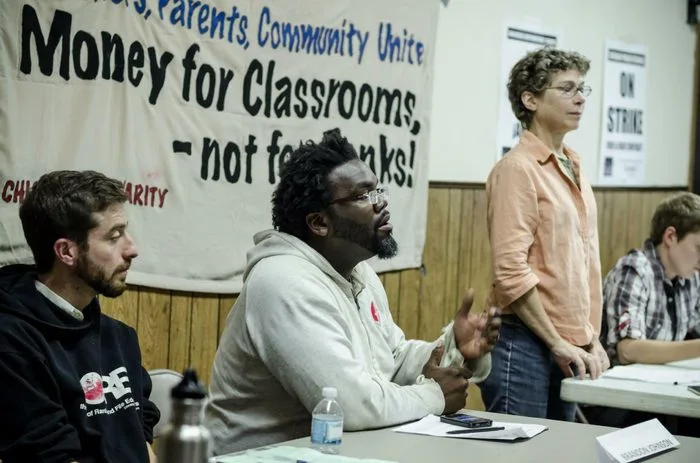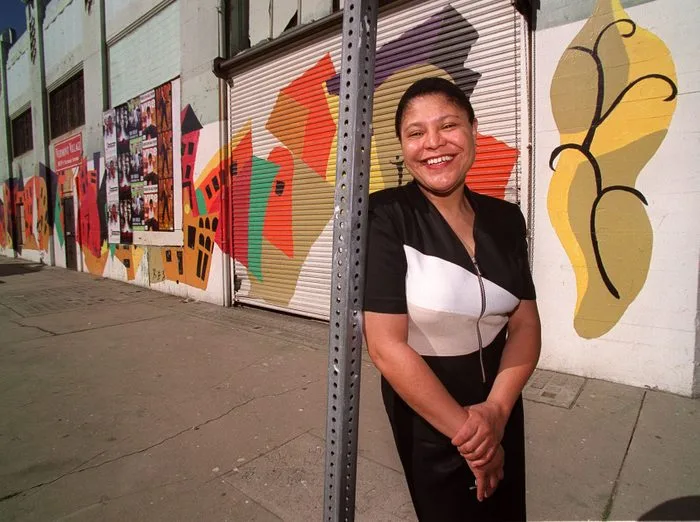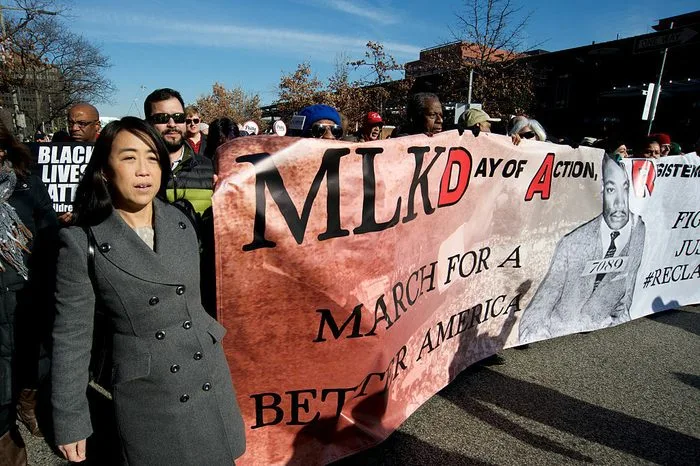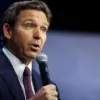Before he became Chicago’s new mayor, Brandon Johnson worked for several years as an organizer for the Chicago Teachers Union. It was a label many media outlets were drawn to surrounding his election: “Brandon Johnson: Organizer. Anti-establishment. Servant-leader. From middle school teacher to Chicago mayor,” read a Chicago Tribune headline on April 9. A few days earlier, Bolts called him, more succinctly, “Chicago’s Organizer Mayor.” In the New Yorker about a month later, Keeanga-Yamahtta Taylor argued that Johnson’s trajectory made him “Chicago’s Unlikeliest Mayor,” and the subhead noted that “the former union organizer makes the leap from protest to politics.”
That aspect of Johnson’s professional and political background was foregrounded by the very context and outcome of the mayoral election. After the primary, the runoff pitted Johnson, a former public school teacher and union organizer, against, as Taylor put it in her New Yorker article, “the first chief executive officer of Chicago Public Schools, Paul Vallas, who promised to confront the ‘rampant crisis of unprecedented levels of crime’ by hiring more police and prosecuting more misdemeanors.” This framing, which many outlets picked up on, sharpened the contours around the candidates’ identities, backgrounds and politics. It’s as if the contrasts couldn’t have been clearer: an organizer versus a CEO, a teacher up against an administrator, social justice versus law and order.

Brandon Johnson (middle) speaks during a forum on September 29, 2012, about the Chicago teachers strike. At the time, Johnson was a staff organizer for the Chicago Teachers Union. Photo by Sarah Jane Rhee
In a larger context where money plays an outsized, undemocratic role in U.S. electoral politics, and where, according to political scientist Patricia Kirkland, mayors since the 1950s have tended to be white men with white-collar careers (about one-third of whom were former business owners or executives), Johnson’s election is indeed unlikely. But that improbability deserves some qualification and some scrutiny. And in doing so, we can learn a lot about what appears to be an emerging trend in U.S. politics.
Out of the 13 new alderpeople who were recently voted into office in Chicago, five are former organizers.
In recent years, increasing numbers of former organizers appear to have run for elected office across the United States, especially if we take media coverage as a somewhat reliable proxy. Sometimes they’ve won, like Karen Bass in Los Angeles, Liz Olson in the Minnesota House of Representatives and Delia Ramirez (D-IL) in Congress. Sometimes they’ve lost, like India Walton in Buffalo or Helen Gym in Philadelphia. Depending on how you define “organizer” — and sometimes the definition can be quite fuzzy — you could add to that list, among others, U.S. Reps. Cori Bush (D-MO), Maxwell Frost (D-FL), Alexandria Ocasio-Cortez (D-NY), Rashida Tlaib (D-MI), Greg Casar (D-TX), state representatives Greta Neubauer in Wisconsin and Julia Salazar in New York, and a whole bunch of local elected officials. In Chicago’s current City Council, my research shows that 10 of the 50 alderpeople who represent the city’s 50 wards and wield significant power locally come from a professionalized organizing background. Out of the 13 new alderpeople who were recently voted into office in Chicago, five are former organizers.

Before becoming Mayor of Los Angeles, Karen Bass was an activist, organizer and the founder of Community Coalition, an organization based in South Los Angeles that aims to advance economic and racial justice. Photo by Ken Hively/Los Angeles Times via Getty Images
But despite whether they won or lost, the candidacies of organizers in many of these races were notable for a number of reasons: They were often running on progressive platforms looking to unseat Democratic Party establishment candidates, and in many cases, they did not hesitate to frame their candidacies in terms of class politics. In Los Angeles, for instance, the runoff between Bass and billionaire Rick Caruso symbolized a clear-cut dichotomy between “the organizer versus the oligarch.”
Clearly, the organizer crowd is still a tiny fraction of elected officials at all levels of government. But these developments point to an often-overlooked phenomenon in U.S. politics, which is that organizer positions can often become stepping stones for political careers (just ask President Barack Obama). They belong to what social scientists call “politics-facilitating occupations,” occupations that prepare their holders to later become full-time political professionals (elected or as staffers). As a wealth of studies in political sociology have shown, not all occupations equally lead to a candidate choosing to run for office. But organizing is key among them: Not only do organizer positions socialize the people holding them into doing day-to-day, nuts-and-bolts organizing work, but they also shape their worldviews, their self-identifications, their politics and the types of skills that they bring into the role. As Gym of Philadelphia put it in 2021, “One of the skills that we bring into our roles is a good understanding of what moves power externally, not necessarily internally but externally. [We also have to have] a sense of timing. If you’re an organizer, you’re constantly thinking about moments in which you push and the moments in which you pull back. That is an extremely important skill when you’re in political office. You are constantly evaluating this idea of the forward-backwards, inside-outside assessments.”

Helen Gym marches in Philadelphia with hundreds protesting right-wing extremism on Martin Luther King Jr. Day in 2017. Photo by Bastiaan Slabbers/NurPhoto via Getty Images
But why does it matter that organizer positions can lead to elected office? There are two main reasons. First, it provides an original contribution to the ongoing debates on the Left around electoral politics. Second, asking the question this way offers a good vantage point onto the current state of U.S. radical politics, including its relationship to electoral politics and both its underlying driving forces as well as its contradictions.
Contrary to the existing murky definitions that kindle the mystique around the “organizer” label, I define organizer positions as roles in a variety of social justice-oriented organizations (community-based and political organizations, labor unions, advocacy groups, certain faith institutions) whose primary tasks consist of expanding an organization’s membership, fostering people’s active participation in public affairs and making sure that its members get more engaged through reform-oriented, carefully planned campaigns. As a result of long-term — and ambiguous — professional dynamics that have undergirded organizing practices in the United States for decades (community organizing in particular), as I describe in Occupation: Organizer, the vast majority of these positions today are full-time, paid ones.
Full-time, paid organizer positions emerged and spread in the 1970s and 1980s and became one of the prime institutional vessels where (some) former ’60s and ’70s radicals could keep pursuing their political commitments and living “for” them while simultaneously living “off” them, to use the very pointed distinction from German sociologist Max Weber. Just as organizer positions cohered into a self-conscious professional group in the late 1970s and early 1980s, they were also incorporated into the division of political labor and into the political arena. In those years, as people’s beliefs in the prospects of economic growth started to crumble and collapse, urban elites had to base their authority on other legitimizing beliefs. One of them was the promise of neighborhood self-determination through participation in local decision-making. In other words, fewer and fewer resources will flow towards you, but you will have a say over what’s left — or rather, the people speaking on your behalf will.
The nascent professional group of organizers could deliver on that promise since they claimed that they knew how to do two things: first, they could bring into existence active (and organized) citizen participation in public affairs. Second, they claimed that they knew how to identify and train community leaders who would speak on behalf of marginalized groups while abiding by existing rules and norms.
For decades, however, the “organizer” label held little symbolic value in the political arena: its meaning was too vague, and its association with protest tactics exposed people to rampant anti-Communism that could smear a candidate’s public image and scare voters off. The terrain changed in 2008 when Obama, who worked as a community organizer on Chicago’s South Side in the mid-1980s, ran for president and was elected to the White House. It doesn’t mean that until then people who had previously worked as paid organizers didn’t run for office, because some of them did, and sometimes they won, mostly at the local and state levels. But 2008 brought about a fundamental change at the symbolic level: the label got inextricably woven into the fabric of Obama’s mythicized trajectory, gaining significant political currency in certain parts of the political field. As a result, the capacity to present oneself as being close to “the people” and “the grassroots” and being able to build genuine connections with people and be recognized in that expertise — doing and endorsing the work of an organizer, in other words — became a political resource that people running for office used more and more in their communications strategies. Increasingly, people who knew little or nothing about organizing work associated the “community organizing” and “community organizer” labels with political careers.
Of course, having worked as a professional organizer doesn’t mechanically turn you into a progressive — let alone a radical leftist. The most obvious example, Obama, is far from being the only one. People who are familiar with Chicago and Illinois politics might remember United Neighborhood Organization founder and executive director Danny Solis, who was appointed to his 25th ward aldermanic seat by Mayor Richard M. Daley in 1996 in retribution for his political support. Several years ago, Solis became a mole for an FBI investigation on political corruption targeting long-time alderman Ed Burke and former Illinois House Speaker Michael Madigan (Solis himself was later charged with bribery). A less grotesque example might be Christian Mitchell, who worked for a couple of years as an organizer for Southsiders Organized for Unity and Liberation (SOUL) before entering mainstream Democratic politics, starting as the youngest member in the Illinois General Assembly in 2013 and advancing all the way to Deputy Governor. (He is now vice president for civic engagement and external affairs at the University of Chicago.) Mitchell also served as the executive director of the Democratic Party of Illinois during the 2018 elections, a sign of a mainstreamed political career if there ever was one.
Beyond the (mostly) positive meanings that have been associated with the “organizer” identity when used in the political field, organizer positions also function as a democratizing pathway to elected office.
But using the “organizer” identity to bolster one’s “grassroots” credibility and position oneself against the stigmatized figure of the “career politician” seems to be a common trait for almost all former organizers running for office. As then-aldermanic candidate Byron Sigcho Lopez put it in South Side Weekly when he was running against Solis in 2018, “I’m not a career politician, I’m a teacher and an organizer, and I think that’s what’s needed now. Having people who understand what happens at the grassroots level, the pain of the people, and what we need to do to represent everyone.” Beyond the (mostly) positive meanings that have been associated with the “organizer” identity when used in the political field, organizer positions also function as a democratizing pathway to elected office. Very often, when you read biographical information about a former organizer turned elected official, you’ll stumble on declarations like “the first (African American, Latinx, Native American),” “the youngest” and “the first openly LGBTQ.” A good recent example of this is socialist Cook County commissioner Anthony Quezada, the first openly gay Latino elected from the county’s eighth district.
For all these reasons, organizer positions appear as a strategic location and resource for the U.S. Left to move forward and go beyond what Aziz Rana dubbed “Left malaise” in an excellent piece for Dissent. Rana argues that “there is no shortcut around the arduous work of rebuilding the institutional spaces that would give everyday life to movement politics” and that “embracing the Left’s emergence — whatever the limitations — means accepting the unavoidability of political struggle.” This means, to Rana, that “[investing] in a full electoral infrastructure, even while recognizing the disadvantages of the Democratic Party’s current voting base” and “expanding the number of candidates who can challenge centrist Democrats at every level and staff every bureaucratic position in local, state and federal government,” is critical. Organizer roles are uniquely positioned as a potential recruitment pool, as Johnson’s election shows.
There are, of course, tensions and contradictions also at play. As the rich history of insurgent Leftist candidates holding office in many countries shows, winning elections is not an end in itself. It’s rather the beginning of a whole new ball game, on a playing field whose rules have been designed to fend off radical — let alone revolutionary — change. The pitfalls of meeting the expectations around the elected official’s role are well-known: cooptation into the political status quo, losing one’s radical policies and ideas, and being normalized into just another insider professional politician whose primary concern is to stay in office.
Former organizers holding elected office can experience the same pitfalls (and many are watching closely to see if Johnson will fall into any of them), but there are also some contradictions that are specific to their roles that are worth highlighting. In many ways, these contradictions are encapsulated in the “organizer-in-chief” label, whose use seems to date back to the Obama candidacy. It was revamped by Bernie Sanders in 2019 and has been recently taken up again by Johnson to signal a different, nonconforming approach to politics.
For former organizers to keep tapping into their organizing background as the source of their political legitimacy, they need to show an ongoing commitment to broader organizing and movement politics.
The first major contradiction has to do with the source of political legitimacy that got them into office (their organizing background). A community organizer turned elected official who thinks that they can hold their new role on a daily basis (and until the end of their term) as if they were still working as an organizer, and organize townhall meetings for every single decision that they must take, for instance, will most likely fail if their refusal to adapt to the role is not part of a broader collective strategy to overturn the rules around how political power is wielded. (As season seven of Buffy the Vampire Slayer
indicates, you need to muster significant power to change the rules and norms that govern a given role. Something that socialists in New York state have recently done around the Build Public Renewables Act.) At the same time, for former organizers to keep tapping into their organizing background as the source of their political legitimacy, they need to show an ongoing commitment to broader organizing and movement politics. Clearly, that’s the interrogation that a lot of folks on the Left have had on their minds when they think about Johnson: How will he interact with the powerful, multifaceted working-class movement that put him into office?
Organizers’ expertise is not just based on their ability to center marginalized, oppressed voices, it’s also bolstered by their refusal to speak on other people’s behalf.
The other contradiction is about organizers’ role and position as political intermediaries between the ruling classes and those they rule over. Organizers’ expertise is not just based on their ability to center marginalized, oppressed voices, it’s also bolstered by their refusal to speak on other people’s behalf. In practice, however, and despite their intentions, they are more likely than volunteer community leaders to be recognized by other social actors as legitimate experts on public affairs and be invited to a number of policy-making spheres.
Meanwhile, it is organizers’ particular brand of professional expertise to bring ordinary people into the political process. But the how and the why they do that matter a lot here. For some, the goal in doing so is to create pluralism without fundamentally challenging the social order (despite paying lip service to “addressing the root causes of the problems,” as the trite expression goes); for others, the goal is individual and collective liberation from oppression and exploitation. While the first option focuses primarily on rationalization and effectiveness as its core principles, something which I liken to management consulting expertise in Occupation: Organizer, the second builds upon a long tradition of radical pedagogy, a core tenet of which is that people’s experiential knowledge matters and is a crucial tool in the journey to emancipation. It remains to be seen which of these two distinct options Johnson will actually implement, but the choice seems clear if indeed he wishes to rule as a true organizer-in-chief.


